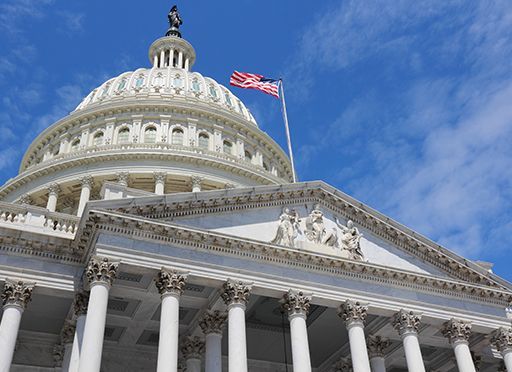National Book Award-winning author Masha Geesen offers a perceptive appraisal of Donald Trump’s perversion of language in his bid for authoritarian power.

Language and Democracy
In this revelatory work, New Yorker staff writer Masha Gessen (whose pronouns are they/them) deconstructs the lies and contradictions of Donald Trump’s administration – which, they contend, upended the typical language of US politics. Gessen, the National Book Award-winning author of The Future Is History: How Totalitarianism Reclaimed Russia, argues that this calculated, deliberate perversion of meaning served the Trump administration’s aims. Whether you agree or disagree with Gessen’s political views, you’ll find their informed assessment of how autocrats use language to shape reality riveting.
The New York Times said, “When Gessen speaks about autocracy, you listen.” Interview called this “a reckoning with what has been lost in the past few years and a map forward with our beliefs intact.” The Guardian wrote that Gessen’s “clarity is gemlike and refusal to equivocate, precious.”
Trump and the Soviet Union
Gessen finds that Trump’s March 2020 reaction to the emerging COVID-19 pandemic encapsulated his usual rhetorical routine: self-congratulations, lies, threats and distortions of fact. Some compared his approach to the Soviet Union’s reaction to the nuclear accident in Chernobyl in 1986.
In the three years of his presidency, even before the coronavirus pandemic, Trump had come closer to achieving autocratic rule than most people would have thought possible.Masha Gessen
Gessen finds the comparison apt and illuminating. They cite the Soviet government’s withholding of crucial information from the people most affected by the disaster. Rather than prioritizing the preservation of human life, Gessen explains, officials affirmed Soviet leadership. The Soviet response, they clarify, exemplifies autocratic leadership and mirrors Trump’s approach to the presidency and to language.
The Volume of Deceit
Gessen finds the volume of lies, chaos and contradictions during the Trump presidency astounding: Any given week, they note, would feature an attempt to manipulate foreign leaders or a claim that no person or institution can hold the US president accountable for any crimes.
Gessen’s overarching theme is that journalists used the lexicon of liberal democracy to describe a situation that was the inverse of those precepts. The author underscores that those discussing the Trump administration obscured the full extent of the danger American democracy faced.
Autocracy
Gessen details how Trump characterized US institutions as enemies, denigrating the CIA, FBI and Department of Justice. Gessen describes how Trump appointed people opposed to and scornful of crucial federal agencies to head those very agencies.
Trump won the Republican nomination. He was probably the first major party nominee who ran not for president but for autocrat. And he won.Masha Gessen
Gessen finds Trump depressingly like other autocrats, who despise human excellence and expertise.
The COVID-19 Response
The author reminds readers that Trump ignored or derided medical authorities during the COVID-19 pandemic. Autocrats, Gessen asserts, bring out and exploit people’s worst characteristics, and then they proudly display those traits themselves.
Trump’s contempt for excellence is of a piece with his public mockery of a disabled journalist, just as Putin’s contempt is expressed in his gutter humor. Trump’s project is the government of the worst – a kakistocracy.Masha Gessen
Gessen tracks how Trump proved incompetent and never tried to conceal it. They find that Trump’s militancy about his lack of relevant knowledge or ability made him extremely dangerous. Governments, the author concludes, cannot function without skillful and intelligent leadership.
A War on Meaning
Trump’s movement toward autocracy began, Gessen recognizes, with an attack on language’s function and the meaning of words. The author offers the parallel example of Putin in 1999 calling for a “dictatorship of the law” – a statement that made so little sense that the terms “dictator” and “law” lost all meaning. Gessen cautions that Trump – like Putin – inverted the definitions of words and rendered them meaningless.
The damage done to American language is not yet nearly as profound as the century-long decimation of Russian under totalitarianism and Putinism, but the lessons of Russian journalists hold. Some words ought to be retired.Masha Gessen
In Gessen’s telling, Trump piled words onto words until they became noise. The author finds that Trump’s assault on language is an assault on freedom.
Lies
Donald Trump lied, and when journalists caught him in those lies, Gessen reports, the administration said he had offered “alternative facts.” Gessen finds that traditional journalistic neutrality normalized the Trump administration and its practices. The media, the author notes, relies on the idea that people don’t want to be caught telling bald-faced lies. But the Trump administration never cared about building trust; Gessen is adamant that it cared only about power.
The power lie conjures a different reality and demands that you choose between your experience and the bully’s demands.Masha Gessen
Gessen portrays Trump’s falsehoods as demonstrating he could say anything he wanted and thus force people to conform to his reality. The author reveals that under totalitarian regimes, insisting on the validity of your perceptions can be more isolating, stressful and dangerous than just accepting government propaganda. Trump’s lies, Gessen concludes, forced citizens to grapple with two conflicting worlds. This created such anxiety that many people embraced Trump’s view wholesale or stopped engaging entirely.
Gessen asserts that, to recover from Trump’s efforts to turn the United States into an autocracy, politicians and citizens must collaborate to generate a new political vision to which America can aspire.
Analysis
Masha Gessen brilliantly raises the usual analysis of politicians’ language to another level, drawing perceptive and functional conclusions by linking Donald Trump’s words and his actions. Many commentators, worn down by the relentlessness of Trump’s attacks on meaning, stopped drilling down as they should have and settled for a knowing world-weariness in response. Gessen finds this irresponsible and damaging to democracy.
Gessen is an extraordinary writer and intellect, and they are well-seasoned in the lies and oppression of Putin’s Russia. Their deconstruction of the language of the Trump era – and that of other autocrats and dictators – is likely to change the way you perceive political speak and its effects. While always politically neutral, getAbstract notes that Trump followers will find nothing here to support their views and much to despise.
Gessen also wrote The Man Without a Face. Worthy books on the rise of authoritarianism include Anne Applebaum’s Twilight of Democracy, Kurt Andersen’s Evil Geniuses and Steven Levitsky’s How Democracies Die.








